What we ask producers to do
For all new commissions from 4 September 2024 we ask production companies to commit to at least 25% of their production teams being from the following underrepresented groups:
- Those from Black, Asian or minority ethnic backgrounds
- Those who identify as Deaf, disabled and/or neurodivergent
- Those from low-income backgrounds - to achieve socio-economic diversity (SED)
We ask that the 25% is made up of at least two of these three underrepresented groups. However, we are flexible in how the overall percentage is achieved and appreciate different productions will have different considerations in terms of location, content, talent, company and population characteristics. We therefore encourage indies to have active conversations with commissioners and the Creative Diversity Team about how to achieve the 25% and identify any challenges to that.
The WHOLE production team from runner to executive producer, craft roles and post production are included in the 25%.
To help champion an inclusive culture on every production, we also expect all our suppliers to adopt our inclusive production principles to ensure production environments are as accessible and inclusive as possible.
We encourage producers to build these plans into their pitch from the start. We want to commission ideas and companies that support our ambition.
These requirement builds on our previous commitment to 20% diversity in production teams. Further information about how we define these groups can be found below.
How we work with production companies
Commissioners will have conversations with production companies ahead of a programme being commissioned to discuss how the 25% will be achieved – and, in some cases, if they might be able to go further.
This forms part of the formal diversity conversation between the producer and commissioner ahead of a final decision, and the outcomes are recorded in the commissioning specification. If you need further advice or support at this stage, our Creative Diversity team may be able to help.
On some productions, the commissioner and producer may agree to target specific roles where they want to develop a broader pool of diverse off-screen talent for the benefit of future series and/or wider sector, which may be beyond what is achievable within the production budget. Where commissioners believe there are valuable interventions to be made beyond the existing budget – they can draw on the diverse talent development fund. Discussions will be had with the production company ahead of commission if this is the case, and funding agreed. We welcome ideas from producers who want to do this, but please note that the diversity development fund is not available for ideas that are not commissioned.
We will continue to discuss progress with companies during production, by asking for updates at each payment stage. We recognise there may be unforeseen challenges and the make-up of teams can change during production. We expect our suppliers to notify us as soon as possible if they are encountering problems achieving the 25%, and our Creative Diversity team can offer advice and support.
Where possible, we encourage all producers to support their teams and the diverse members to find further work at the end of a production and progress their careers. See our resources section for insight and advice about ways of supporting individuals in production.
How we measure progress
Throughout the production we will continue to check how a company is doing against their commitment in the production progress report.
We ask all producers to report on what percentage of their production team comes from the three underrepresented groups in the end of production report, along with any actions taken to increase off air diversity which were agreed and recorded in the programme commissioning specification. The end of production report can be accessed via the finance and invoicing page along with a list of the information required.
At the end of the production we will also use Diamond diversity data to judge if a production has met the 25%. Diamond is the pan-industry monitoring tool used to track diversity in a production, both on and off screen. We expect production companies to ensure their teams are engaged with Diamond reporting and encourage them to self-declare their diversity information via the system. Find out more about using Diamond and how to encourage individuals to self-declare.
We will not be able to track progress on Socio-Economic Diversity through Diamond until agreement is reached with The Creative Diversity Network and other Broadcasters, and changes are implemented in the system. We are working to do this as soon as possible.
Underrepresented groups: the definitions
The definitions for the three underrepresented groups are as follows:
Those from Black, Asian or minority ethnic backgrounds.
Defined as:
- Black/African/Caribbean/Black British. Selection: Black African, Black British, Black Other, Black Caribbean, Other Black background
- Asian/Asian British. Selection: Asian British, Bangladeshi, Chinese, Indian, Other Asian background, Pakistani
- Mixed/Multiple Ethnic Groups. Selection: Mixed Ethnicity
- Other Ethnic Group. Selection: Middle/Near Eastern/Arab, any other Ethnic Group
Those with lived experience of a disability
Defined as:
- Under the Equality Act 2010 a person is disabled if they have a physical or mental impairment that has a ‘substantial’ and ‘long-term’ negative effect on their ability to do normal daily activities.
Those from low-income backgrounds – to achieve socio-economic diversity (SED)
We use ‘parental occupation’ as the key factor to determine this group ie anyone whose parents were in ‘routine and manual occupations’ at the age of 14. For example:
- Semi-routine manual and service occupations such as: postal worker, machine operative, security guard, caretaker, farm worker, catering assistant, sales assistant.
- Routine manual and service occupations such as: HGV driver, cleaner, porter, packer, labourer, waiter/waitress, bar staff.
We appreciate that socio-economic diversity is not as established an industry standard as ethnicity and disability – and we are working with other broadcasters, the , and the to improve the consistency of definitions, monitoring protocols and reporting through Diamond. In the meantime, we will work with producers to make positive progress, and you can find useful resources to help below.
Support and guidance
The ������̳ Creative Diversity team are available to provide guidance and identify potential opportunities and interventions to help meet the 25%. Contact Iyare, Michelle, Kay and Stefan for advice about our diversity commitments and diverse onscreen talent. Conversations about programme ideas or diversity within productions should be directed to the genre commissioners.
Contacts for further support
-
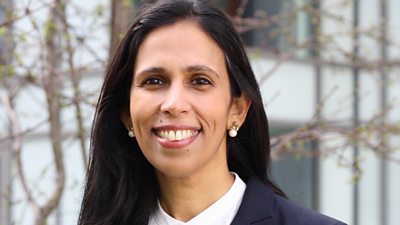
Jessica Schibli
Head of Creative Diversity -
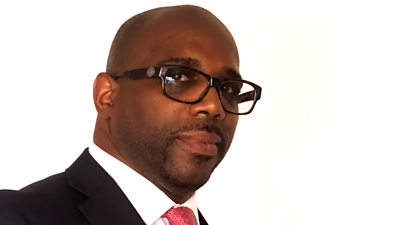
Iyare Igiehon
Creative Diversity Partner, scripted TV and Radio -

Michelle Matherson
Creative Diversity Partner, unscripted TV -

Stefan Gibbons-Arif
Creative Diversity Partner, Children’s & Education and Nations -
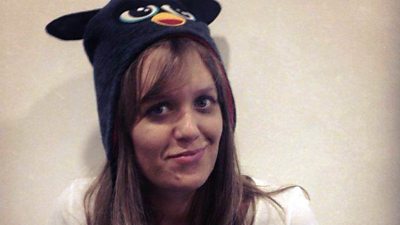
Kay Ashton
Creative Diversity Partner, Sport, Radio and digital disability -

Nichola Garde
Creative Diversity Partner Content and Nations Disability Lead
Resources for producers
-

Our TV disability access commitments
Improving the representation of deaf, disabled and neurodivergent people on screen, with a focus on both the quality and quantity of representation. -

Inclusive production principles
We ask all the producers we work with to commit to a set of principles to improve inclusion on their productions. -
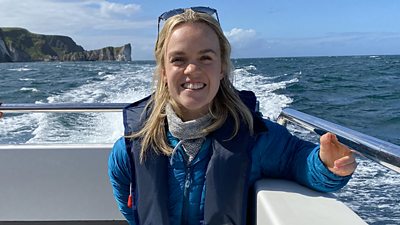
The 5 As: our standards for disability inclusion
A set of simple guidelines and principles which any organisation in the industry is welcome to adopt podeuced by The TV Access Project. -

������̳ Creative Diversity website
Extensive guidance on how indies can recruit and retain diverse staff, including a list of the organisations that can help production companies reach wider audiences when advertising vacancies. -
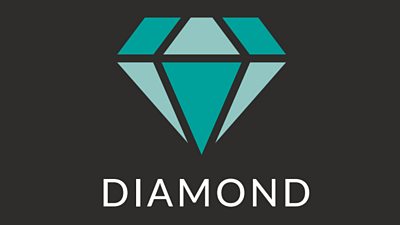
Diamond information
Find information about Diamond diversity monitoring and how to complete both actual and perceived diversity data. -

The diverse talent development fund
Fund available to support programme makers to develop both onscreen and off-screen talent where it is above and beyond what can be delivered through the production budget. -

Elevate
Helping deaf, disabled and neurodivergent mid-level production talent progress their careers in TV through traning and production company placements. -

Production Management Skills Fund
Access our fund designed to address the current production manager and co-ordinator skills gap and create a new pool of talent for the future. -
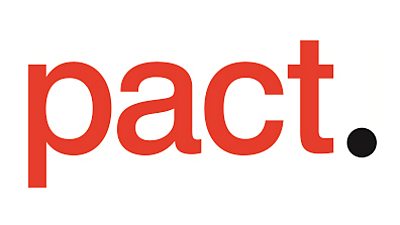 We co-fund a diversity adviser in Pact who offers a range of advice, resources and training relevant to independent production companies. They offer a downloadable diversity monitoring form and a sample diversity and inclusion strategy for companies to adopt, as well as advice about SED data collection.
We co-fund a diversity adviser in Pact who offers a range of advice, resources and training relevant to independent production companies. They offer a downloadable diversity monitoring form and a sample diversity and inclusion strategy for companies to adopt, as well as advice about SED data collection. -
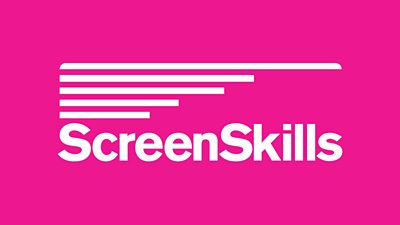 ScreenSkills works with the broadcast industry to develop inclusive training, supporting programmes and courses that develop diverse talent and workplace inclusivity. They also provide a template diversity and inclusivity monitoring form and advice about how companies can implement this.
ScreenSkills works with the broadcast industry to develop inclusive training, supporting programmes and courses that develop diverse talent and workplace inclusivity. They also provide a template diversity and inclusivity monitoring form and advice about how companies can implement this. -
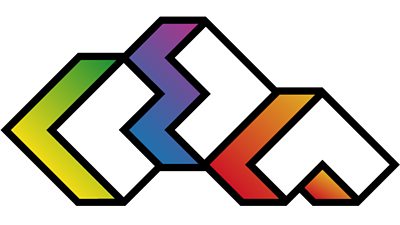 Advice and resources to help productions complete Diamond forms and advice about engaging teams to do so.
Advice and resources to help productions complete Diamond forms and advice about engaging teams to do so.
Please note the ������̳ is not responsible for the content of external websites.
Explore the site
-
Briefs and contacts
Commissioners and ideas -
Supporting indies
How we commission and work -
Skills and training
Industry training and skills development
